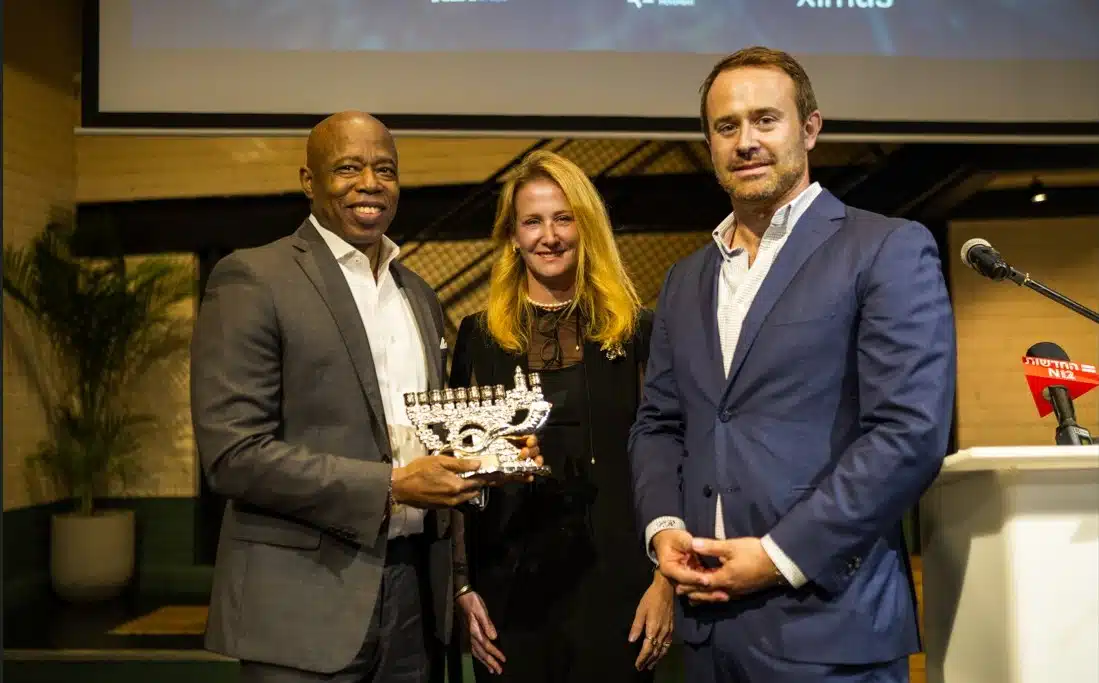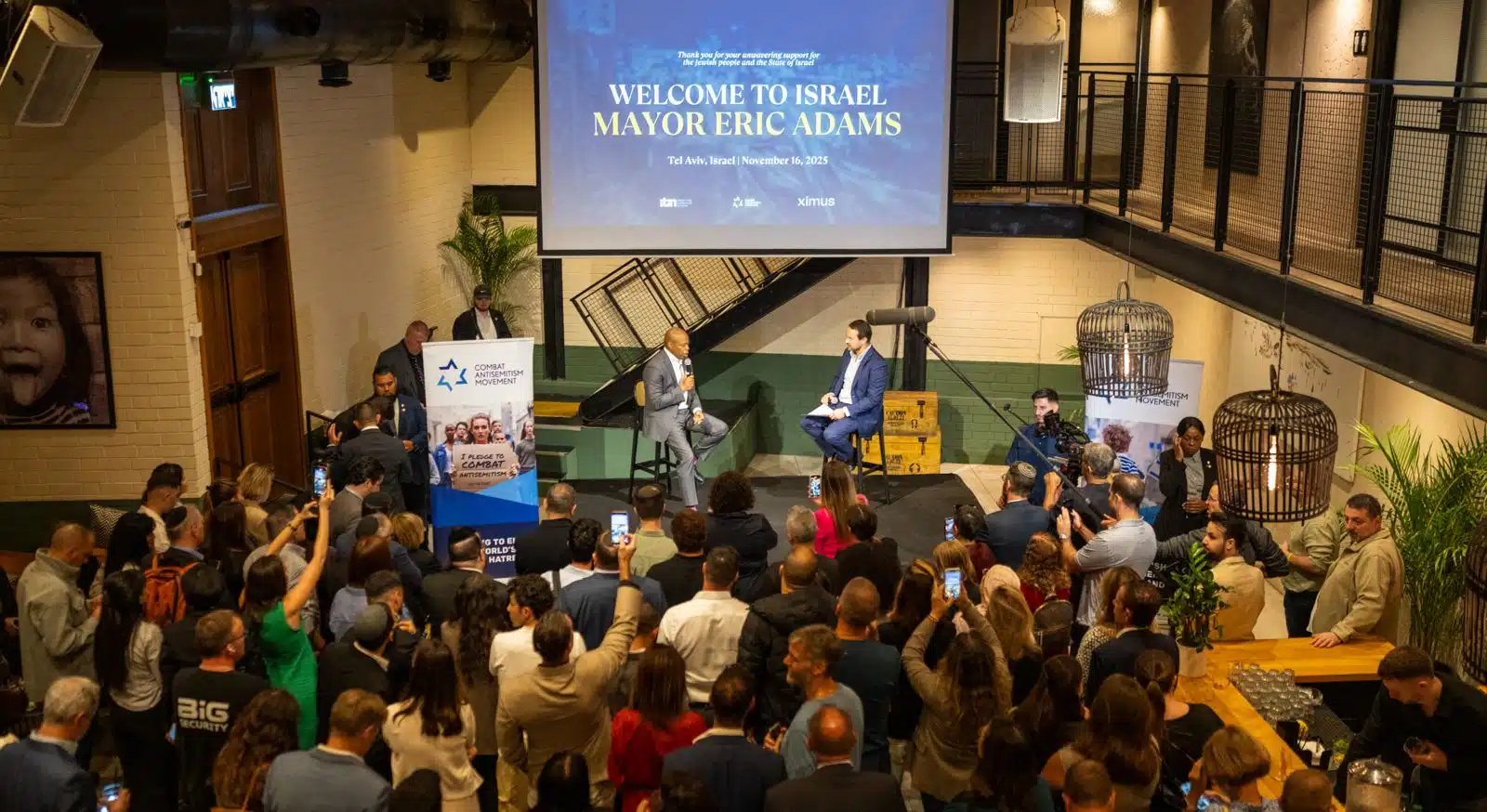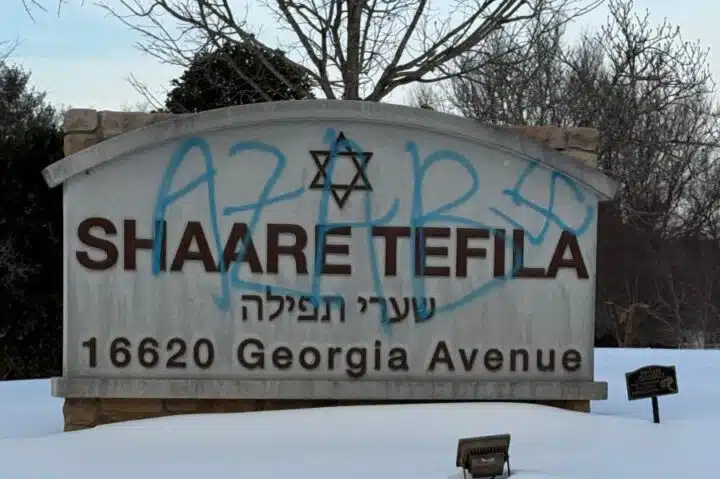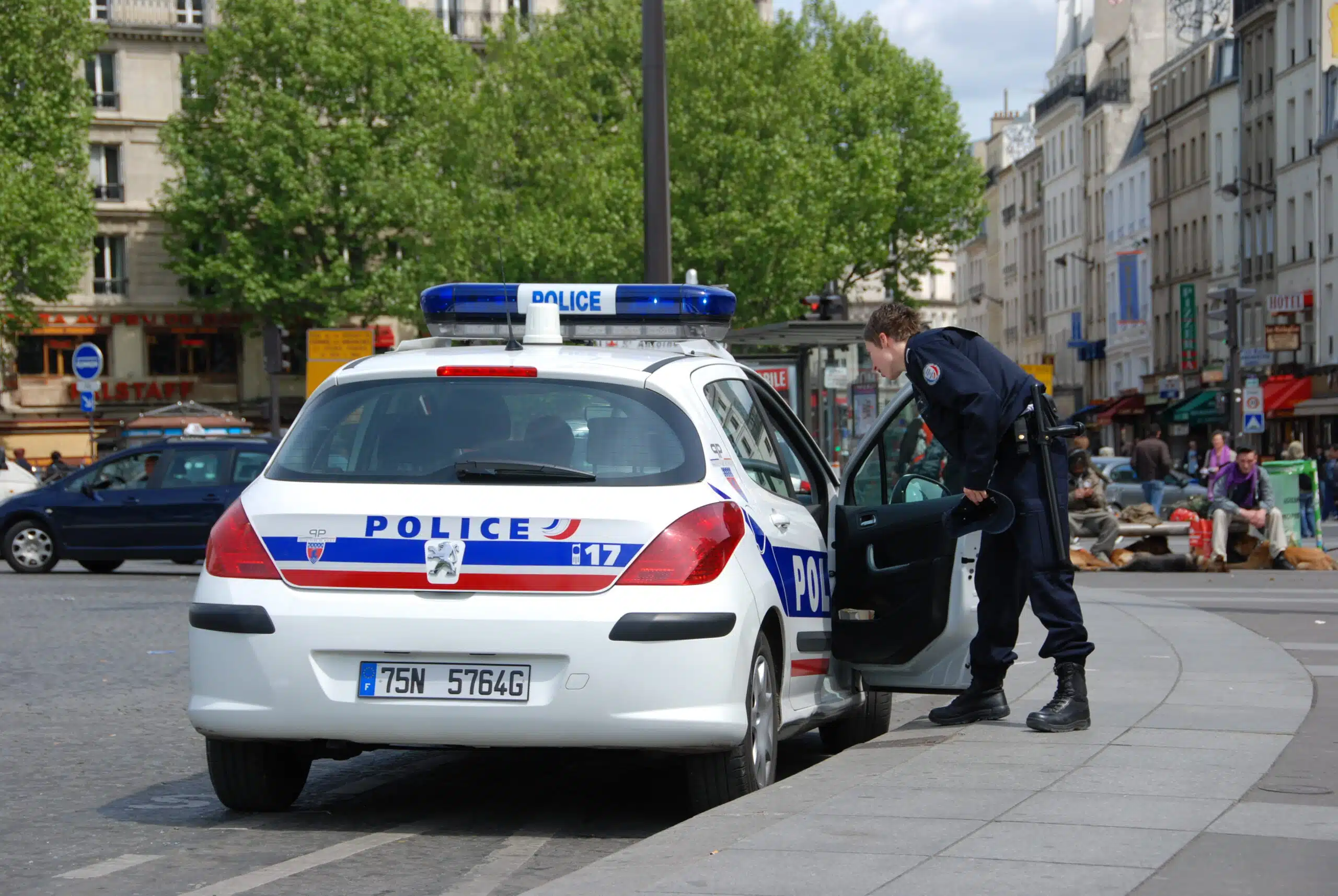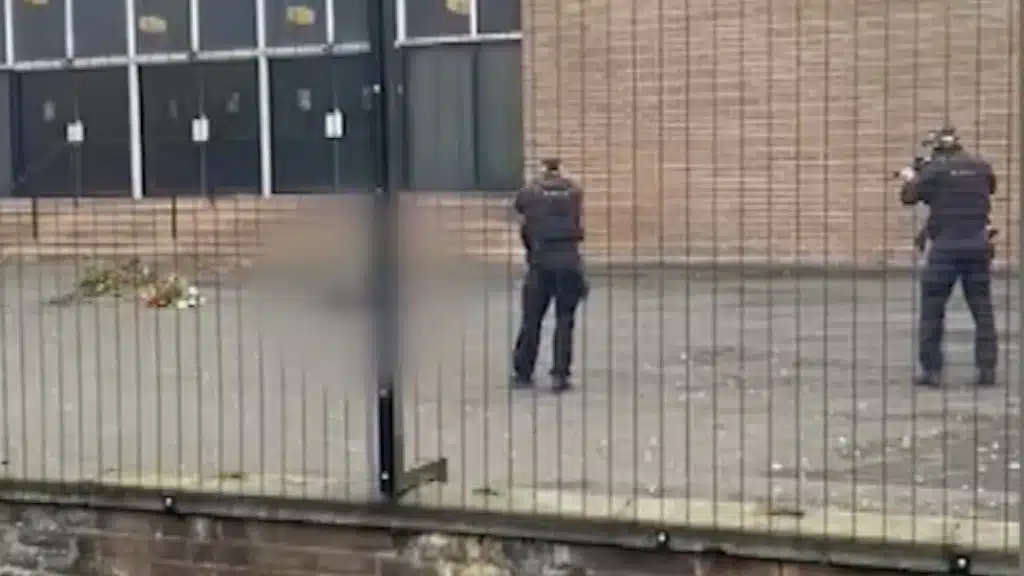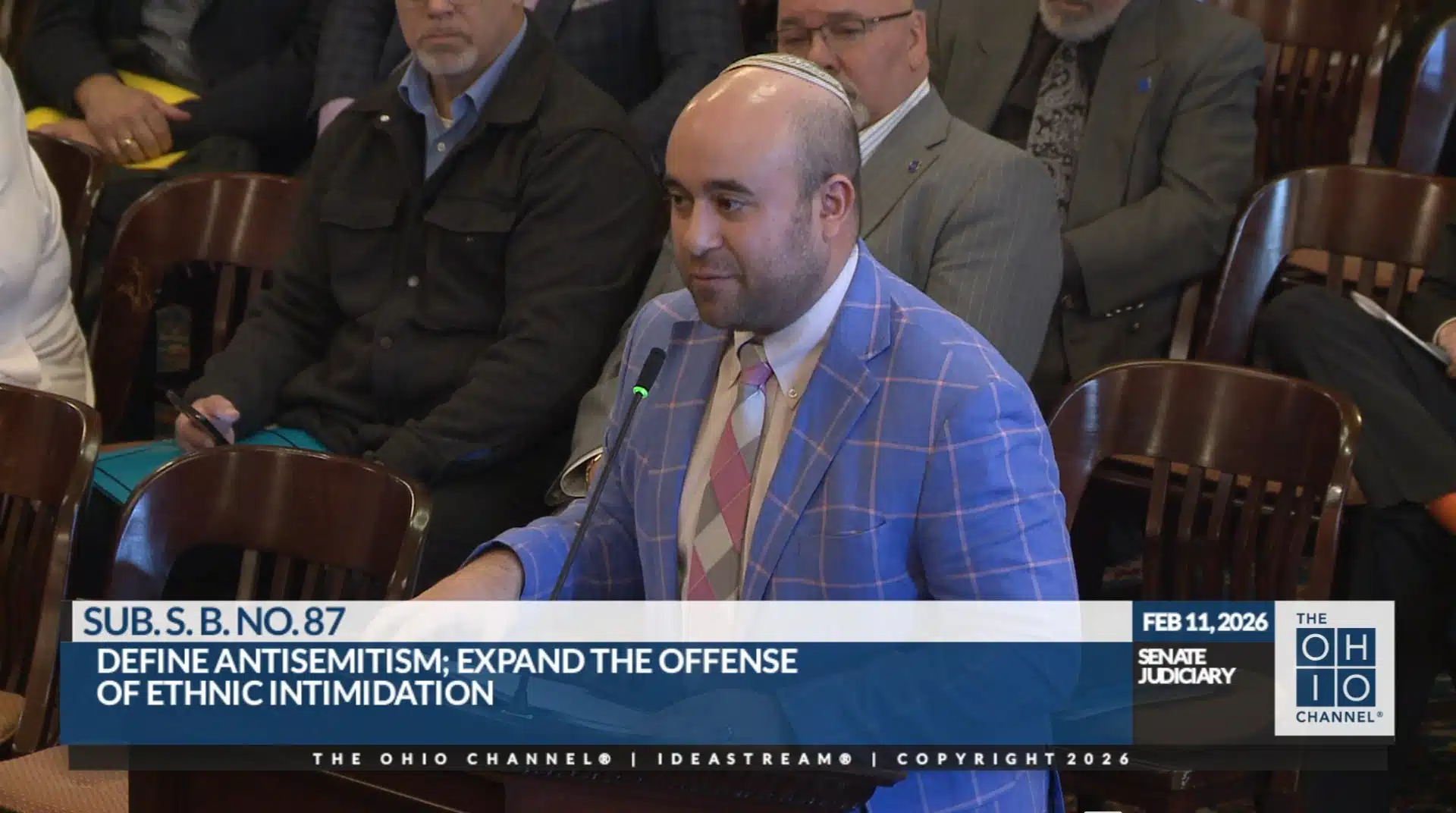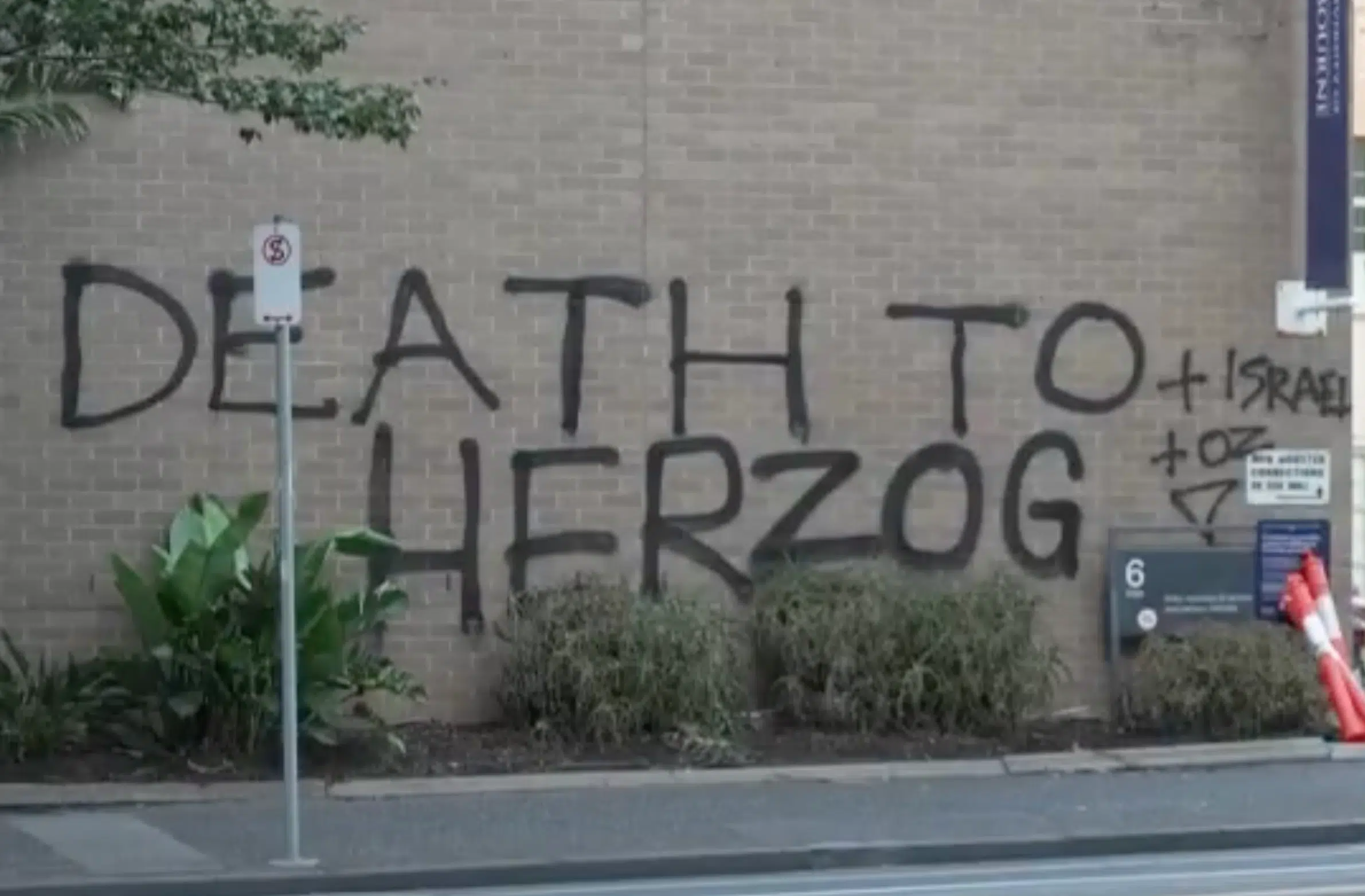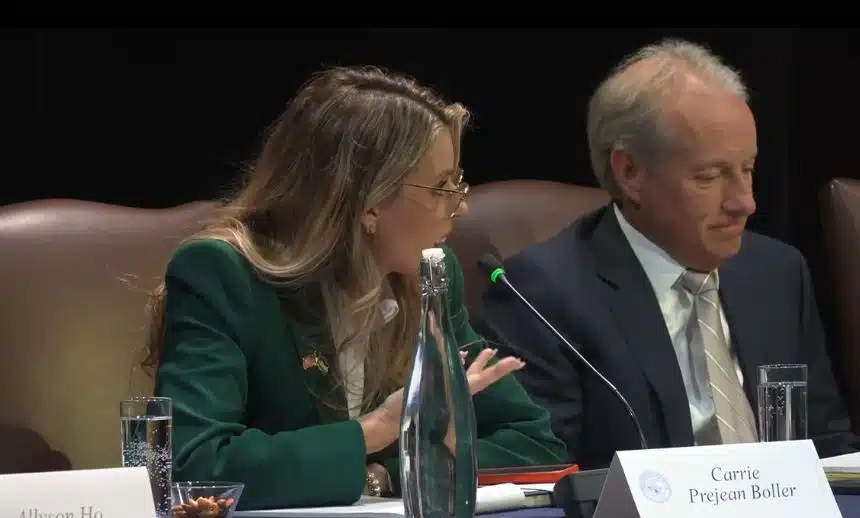|
Getting your Trinity Audio player ready...
|
The Combat Antisemitism Movement (CAM) hosted a special gathering in Tel Aviv on Sunday to honor outgoing New York City Mayor Eric Adams during his visit to Israel.
The forum highlighted the steadfast commitment Adams has displayed over the past four years to securing and nurturing Jewish life in New York City, as well as his unwavering support for the State of Israel, particularly in the wake of the October 7th massacre and the global wave of antisemitism it triggered.
Held at Dubnov Gallery in central Tel Aviv, the event came at a critical moment for New York as the city prepares for the January inauguration of new administration under Mayor-elect Zohran Mamdani, whose history of antisemitic rhetoric has put Jewish New Yorkers on edge.
The gathering — organized by CAM alongside the Israel Trade and Innovation Network and Ximus Forum — also underscored the shared values and ideals at the root of the enduring U.S.-Israel alliance.
As Adams entered the hall, event attendees heard a poignant reminder of his leadership at one of Israel’s darkest moments. The mayor’s “We Are Not Alright” speech from immediately after October 7th offered a powerful message of solidarity and support when it was needed most.
In his introductory remarks, CAM CEO Sacha Roytman paid tribute to Adams’ longstanding partnership in the fight against antisemitism, recalling his participation in CAM’s Mayors Summit Against Antisemitism in Athens, Greece, in 2022.
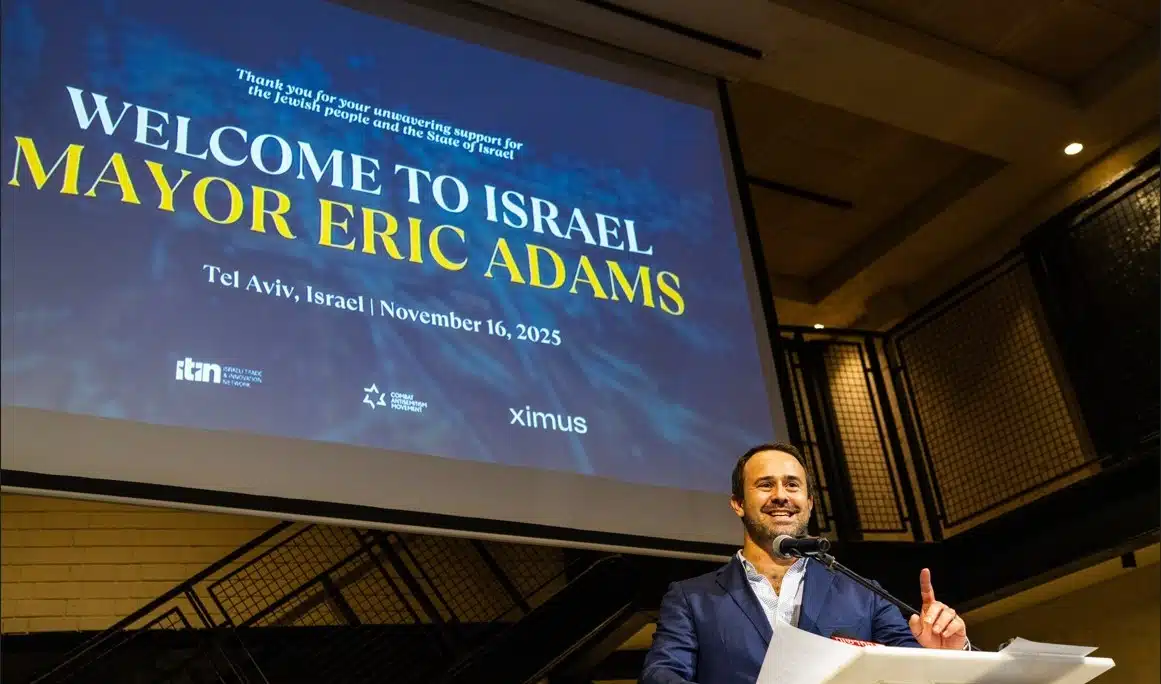
“You stood before leaders from across the globe and said that mayors must act and must not allow antisemitism to rise in their cities,” Roytman noted.
Roytman added that Adams’ early involvement helped expand CAM’s global mayoral network. “Today, thanks to your support, we are working with more than 1,500 cities across the world,” Roytman said.
Roytman also reflected on the mayor’s work in New York City. Adams issued an executive order adopting the International Holocaust Remembrance Alliance (IHRA) Working Definition of Antisemitism; created the city’s first office dedicated to confronting antisemitism through legislation, education, and engagement; established a Jewish advisory council; and launched the New York City-Israel Economic Council. He also ensured consistent protection for Jewish institutions and events, from synagogues and schools to private gatherings and the annual Israel Day Parade.
“After October 7th, when antisemitism surged, you were out in the streets standing with us,” Roytman said. “Your famous words — ‘We are not alright’ — still echo in our minds, because that is exactly how we feel when we see antisemitism rising and when we see who New York elected as its next mayor.”
Roytman also praised Adams’ ability to unite diverse communities. “Your voice brings people together — Jews and Muslims, African Americans, and so many others,” he said. “The friendship between Jews and the Black community is essential. Together, we can push back against hatred and build a better world.”
He ended with a simple message of gratitude: “Mr. Mayor, thank you.”
A Candid Conversation on Leadership
Following Roytman’s remarks, Adams joined the CAM CEO on stage for a conversation presenting an unfiltered look at leadership, the challenges facing New York City, and the global rise of antisemitism.
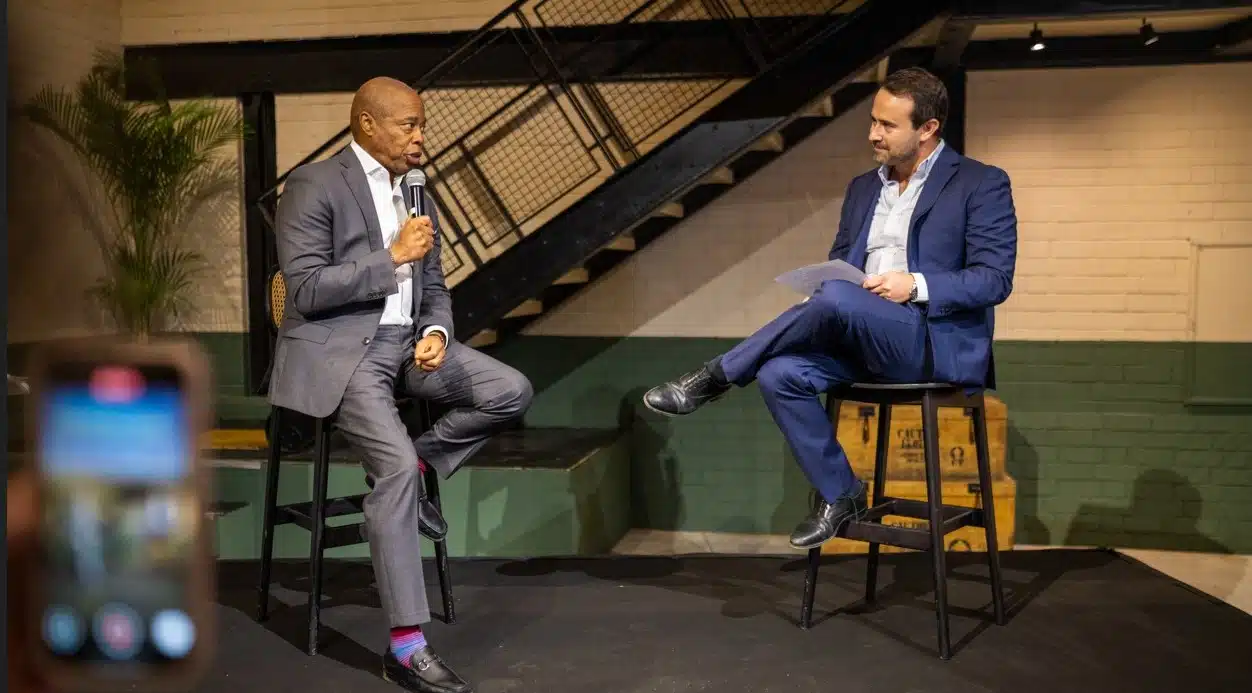
Reflecting on his mayoral tenure, Adams described it as “a relay,” emphasizing the responsibility of passing on both successes and lessons learned. “You run your mile, and you pass the baton,” he said. He also expressed concern that the incoming Mamdani administration did not grasp the urgency of healing a fractured city. “A lot of the work we started — especially the work of bringing the city together — I think we’re going to lose some ground on that,” he said. “And that troubles me.”
He then turned to the symbolism of leadership. “Substance and symbolism go together,” Adams pointed out. “Your words can translate into the actions of others. Even if you disagree, you must be a leader for everyone.”
Adams warned that Mamdani’s early signals were emboldening extremists. He commented, “You cannot be slow to say you don’t embrace ‘Globalize the Intifada.’ That symbolism matters.”
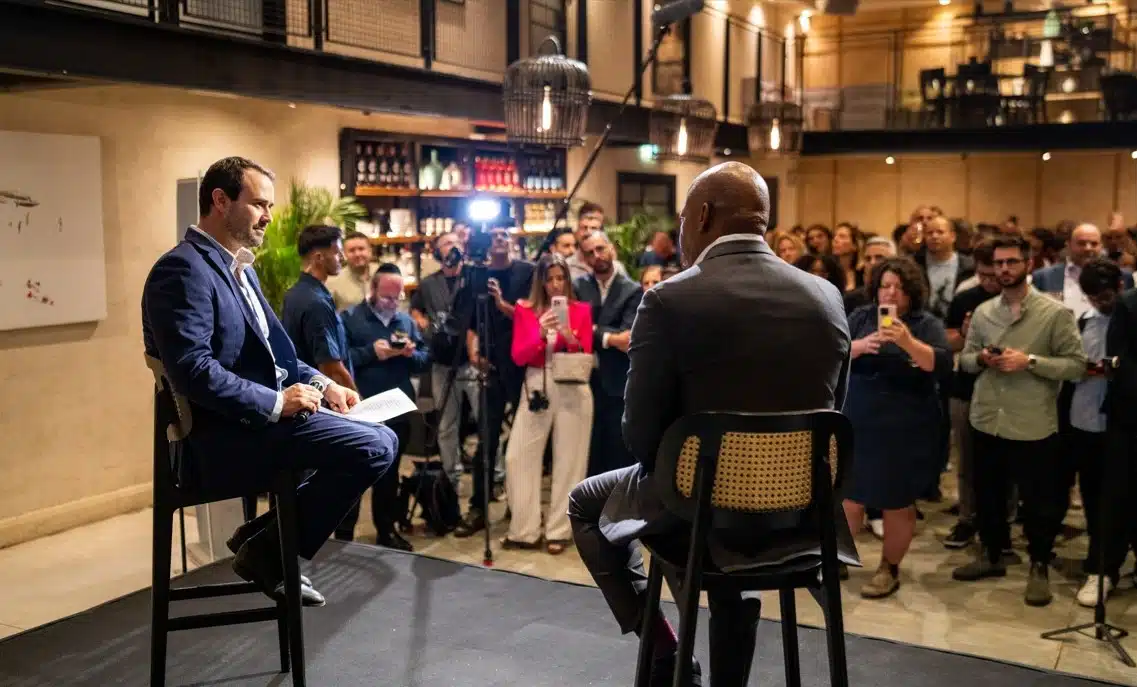
A Stark Warning About New York’s Future
When asked about antisemitism in New York City, Adams did not soften his assessment. He described an alarming cultural shift in which hate was socially rewarded. “It is now cool and hip to be antisemitic,” he said. He remembered a teenager in Brownsville calling him a Zionist and calling Israel’s destruction — an ideology absorbed from social media, as the boy could not even identify Israel on a map.
The trend, Adams said, was continuing to accelerate on campuses, in public schools, and across digital platforms. “They hijacked our young people,” he said. “Their plan was well executed. Now we need a professional plan to fight back.”
Adams urged Jewish New Yorkers to stay clear-eyed. “If I were a Jewish New Yorker, I would be concerned about my children,” he said. “People want to sugarcoat the moment. We cannot do that.”
He went on to say, “The ‘Free Palestine Movement’ was never about land. It was, and is, about the destruction and eradication of Jewish people.” Adams added that if the situation were reversed, the silence would not stand. “If this were happening to the African American community, you would not be silent,” he said. “So why are others silent now?”
Two years after his “We Are Not Alright” speech, Adams was asked whether anything had changed. “No, we’re not all right,” he replied. “We’re far from it. We’re going in the wrong direction.” He called for a coordinated and strategic response led by Jewish organizations and allies. “We need a well-executed business plan to stop antisemitism. We need to regain our young people.”
A Personal Connection
The conversation ended on a personal note. Adams described the emotional and physical toll of his time in office, with long days, constant crises, and relentless demands. Yet he also reiterated his ongoing commitment to New Yorkers. “I wake up, pray, meditate, drink my green smoothie, and face whatever the day brings,” he said with a smile.
He spoke of wanting more time with his son and hinted at a future connected to Israel. “I’m ready to find my place here,” he joked. “Maybe I should start talking to real estate agents.”
As the evening concluded, Mayor Adams was presented with Hanukkah menorah as a gesture of recognition and appreciation for his allyship with the Jewish people.
